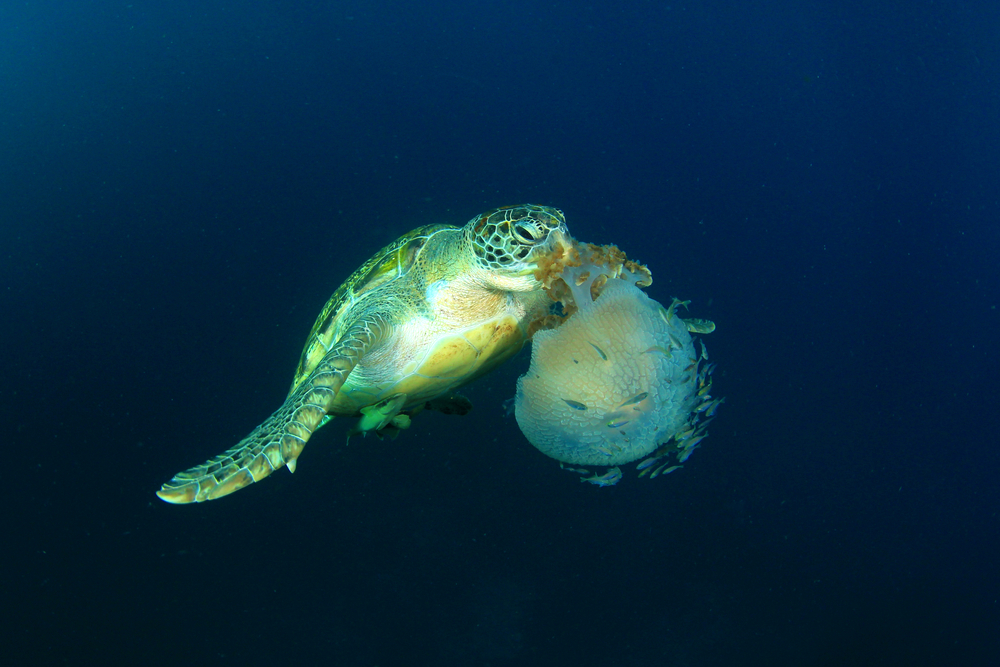
Last week Dr Qamar Schuyler (University of Queensland), along with a team of international scientists, published a report in the journal Global Change Biology which aimed to quantify the impact of marine debris on sea turtles. Using modelling techniques they revealed that up to 52% of sea turtles world-wide may have ingested plastic debris.
Plastic marine debris pollution is one of the greatest threats facing ocean biodiversity in the 21st century. Scientists have estimated that up to 12 million tons of plastic pollution enters our oceans every year. The underlying cause for this is simply a disparity between input and output—plastic production far exceeds our capacity to dispose of it in an environmentally sound way.
Sea turtles are especially vulnerable to ingesting plastic pollution as they tend to feed on slow-moving or floating food items such as jellyfish—unfortunately plastic carrier bags are often eaten by mistake. The consumed plastics can kill or wound turtles by blocking or damaging their gut. In some cases a turtle will stop eating because it feels full from the indigestible plastic, and it will starve to death. In addition, toxins from the plastics can accumulate in the turtle’s body tissue, which can eventually lead to death.
Dr Qamar Schuyler and her team modelled existing data on marine plastic and turtle distributions with data on turtle necropsies and characteristics of various turtle species.
They found that sea turtle populations are most at risk off of the east coasts of the USA, Australia and South Africa; the east Indian Ocean, and Southeast Asia. They also identified middle-aged turtles of species which inhabit the deep oceans to be most at risk. Olive ridley turtles were identified to be the most at risk species. They hunt jellyfish and other floating animals in open ocean which makes them particularly vulnerable to consuming plastics which gather in deep ocean currents.

Photo by Richard Whitcombe / Shutterstock
It is not just turtles that are at risk either. Another recent study has shown that over 60 percent of seabird species have ingested marine debris. There are even concerns that plastic may start to be found in the fish we eat!
However, there is a chance that scientists could have found a solution. In this instance, by scientist, we mean a young Dutch entrepreneur aged 19.
Boyan Slat is the founder and CEO of The Ocean Cleanup who in 2013, developed a concept to enable the ocean to rid itself of plastic debris. By placing ocean cleanup arrays (large V-shaped rigs) in the five largest circular ocean currents (gyres), plastic debris simply floats into them and is removed and recycled. Boyan’s team claim ‘a single Ocean Cleanup Array can clean up half the Great Pacific Garbage Patch in 10 year’s time’.
The project intends to begin the cleanup by 2020. Boyan’s Ted talk is most definitely worth a watch, in which he first proposes his concept to an international scientific audience.
